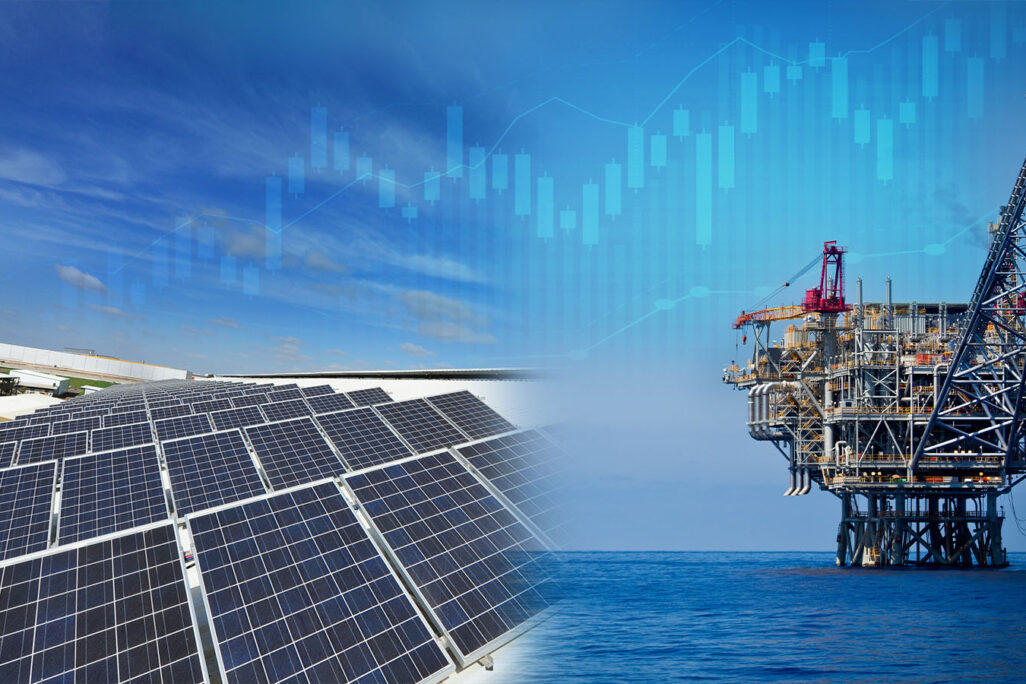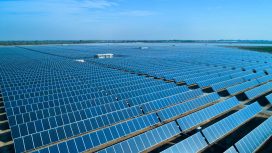
In 2019, it may be tempting to hold the view that the developed world is, despite the denialist movement’s best efforts, slowly waking up to the realities of climate change – with numerous world leaders pledging ambitious targets for emissions reductions and transitions to carbon-neutral economies. The reality, however, is that a great many nations are in a state of limbo, as the facts of climate change, come up against the real-world difficulties of enacting broad policy change. Israel is one such nation experiencing these growing pains, as its economy, which is 93 percent based in fossil fuels, attempts to reconcile its current trajectory with the international call to action.
The energy debate in Israel often reveals large gaps between governmental bodies and environmental organizations – in terms of how they assess the current situation, diagnose the scope of the problem, and plan for the future. These gaps are numerous and far-reaching, and point to a fundamental disagreement about the nature and severity of the problem: Is this a national emergency, requiring a total energy overhaul, or an issue which can be tackled through piecemeal developments and familiar strategies?

Renewable energy in Israel today accounts for only 6.7 percent of total energy consumption, with the overwhelming majority coming from coal and natural gas. There is widespread consensus that coal, which makes up 30 percent of the pie, is a heavy polluter which must be replaced by cleaner alternatives. Natural gas on the other hand, which provides 63 percent of Israel’s energy, has sparked significant disagreement and debate. While the Ministry of Energy considers natural gas a “clean fuel,” environmental organizations consider it a climate-warming fossil fuel.
Why the disagreement, and who should we trust? Natural gas, compared with coal, emits roughly half as much carbon dioxide in electricity production. Despite this, the extraction and transportation of natural gas is known to trigger leaks of methane gas into the atmosphere. Methane leaks associated with natural gas processing in Israel are difficult to measure, but are estimated at between 1 and 4 percent of total natural gas emissions. This may appear insignificant; however, methane is a greenhouse gas roughly 30 times worse than carbon dioxide in terms of trapping heat in the atmosphere. Taking this into consideration, studies show that methane leaks must be kept below 3.2 percent of total emissions if natural gas is to outperform coal over 20 years. In short: natural gas is a better option than coal, but not by much.

Nevertheless, transitioning from coal to natural gas is often lauded by government officials as a significant step towards a renewable future, while environmentalists condemn this as little more than a distraction – switching out one fossil fuel for another.
The recently-discovered Leviathan gas field, off the coast of Haifa and one of the largest reserves of natural gas in the world, is on track to become active by the end of 2019. Environmental organizations warn that increasing Israel’s reliance on natural gas risks effectively closing the door on renewables, and is in fact an investment in outdated fossil-fuel technology. Activists have accused the Energy Ministry of being “addicted to gas,” and “in the pocket of the natural gas industry.” Director General of the Energy Ministry, Ehud Adiri, has claimed, “We will not replace dependence on coal with dependence on natural gas.” Climate activists, however, claim that by installing a new enormous natural gas reserve, capable of meeting Israel’s total energy needs for the next 40 years, the government is doing exactly that.
New target for renewables
The latest spat has been on the issue of renewable energy targets. Minister of Energy Yuval Steinitz updated Israel’s renewable energy target last week to between 25 and 30 percent of the energy supply by 2030, up from 17 percent. Much criticism has been levelled at the new target, which according to the government is a “green alternative.” According to critics from environmental organizations, the target is too low, seemingly arbitrarily set, and likely designed to allow for increased natural gas use – a significant emitter of greenhouse gases.

The target, updated last week by the Minister of Energy, is largely based on a report from the Electricity Authority on the realistic potential for renewable energy infrastructure in Israel. The report, which has not yet been released to the public, aims to estimate the maximum rate of renewable energy that could be achieved by 2030.
The report is said to take into account a range of known constraints: Lack of electrical network backup from neighboring countries; The challenges of powering a densely populated state with non-arable land; Difficulties in systems planning and construction; The state’s prohibition on installing solar panels on roofs of buildings without building permits; The large distances between areas with high demand for electricity and renewable energy production sites; and the lack of diversity in clean energy production technologies in Israel.
Renewable energy in Israel almost exclusively comes from solar panels, which is outlined in the report as a serious setback. They are active for exactly the same sunlight hours of the day, are packed together tightly, and are operational for about one-fifth of the year. This greatly increases the volatility in renewable energy production and makes it difficult for the administrative report to responsibly account for the energy mix at any given moment.
According to activists, however, the report fails to take into account numerous benefits of solar technology – the possibility of generating energy even without new land allocation by utilizing roof space, water reservoirs, and other areas like plots of land trapped within traffic interchanges. Moreover, technological developments have already made possible solar roads, solar windows, and solar panels designed for tower walls, in addition to those placed on rooftops. Recent studies also point to further improvements in this area, as well as significant improvements and cost reductions in energy storage.

As part of the process of revising the targets, the Electricity Authority received evaluations from various environmental activists and organizations, who took issue with what was in their views very low target set for renewable energy of between 25 and 30 percent of the electricity supply. According to the authority's forecasts, however, determining the target in terms of percentages may be misleading, due to the constantly rising demand for electricity. Providing 25 percent in 2050 will require twice the amount of electricity needed to provide the same 25 percent in 2030.
A critical response was also leveled by Israel’s Ministry of Environmental Protection. “The Electricity Authority’s economic analysis is fundamentally flawed because it rests on the notion that we ought to preserve our use of fossil fuels," said the Ministry in a statement. "The document has significant holes, and so its conclusions are ill-conceived. The Electricity Authority’s report perpetuates the use of coal based on faulty assumptions. The economic analysis carried out by the Ministry of the Environment signals entirely different conclusions, and the ministry will soon publish its own well-reasoned position in great detail.”
The Electricity Authority was surprised by the reaction, and believes it to be only a misunderstanding, and not a substantive disagreement, and their intentions are indeed to recommend increasing the use of renewable energy, which will slightly lessen the increase in the use of gas.
The Home Guardians, an environmentalist organization responded to the proposed plan published by the Electricity Authority, by reviewing both the calculations themselves, along with the plan’s base assumptions. The organization has proposed its own plan, for a 100 percent renewable energy alternative. However, their claim that it is possible to establish clean energy production facilities to meet the total electricity demand in Israel indicates significant gaps between the writers of the organization's response and the Electricity Authority's own officials in their assessment of the reality of the energy issue today. At any rate, the gap between 30 percent and 100 percent is too large to lend itself to simple solutions.

Israel is a world leader in both agricultural and water technologies. The efficiency of water consumption in agriculture, along with an abundance of desalination plants have enabled Israel to sustain its rapidly growing population and a rising standard of living, even despite a consistent drop in rainfall and a negative change in its distribution throughout the year across different regions.
The question that remains is whether Israel’s energy market is capable of anything more than adopting old technology. Is Israel capable of functioning as a nation of research and innovation, of paving the way toward a clean, efficient future for itself, and for all humanity? The current plan, which embraces natural gas, may pass as acceptable by today’s standards – but in facing the enormous challenge that climate change poses for living conditions around the world, it is far from ambitious.






